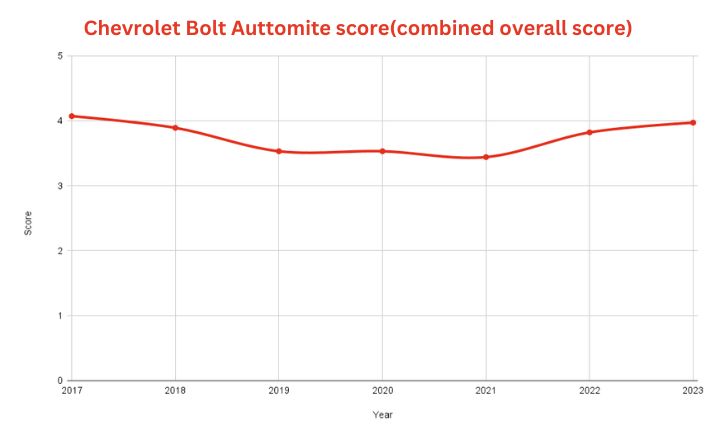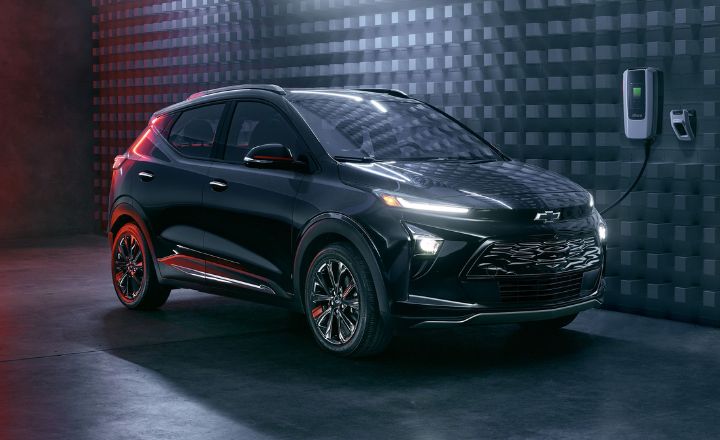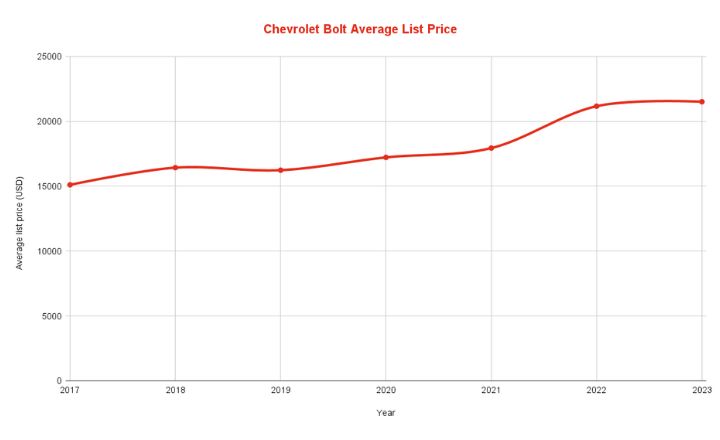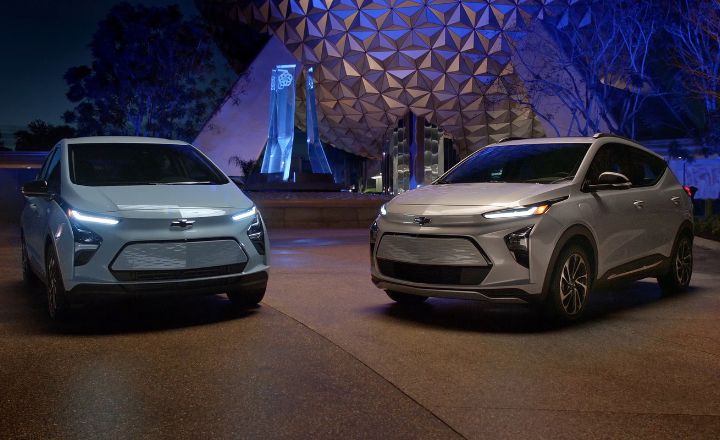The Chevrolet Bolt has emerged as a significant player in the electric vehicle (EV) market since its debut. This compact car has been praised for its impressive electric range, functionality, and affordability.
As with any vehicle, some model years have proven to be more reliable and desirable than others. This article dives into the best & worst Chevrolet Bolt years, exploring how different models have performed over time.
Chevrolet Bolt Generations
The Chevrolet Bolt was introduced in 2017 as General Motors’ answer to the growing demand for electric vehicles that are both affordable and practical for everyday use.
Below are the Chevrolet Bolt models spanning from 2017 to the current year
| Generation | Years |
|---|---|
| 1st generation | 2017-Present |
It was one of the first EVs to offer a range exceeding 200 miles on a single charge at a price point accessible to a broader audience, thus setting a benchmark in the segment.
Chevrolet Bolt Best, Neutral, and Worst Years
When evaluating the best, neutral, and worst years for the Chevrolet Bre Bolt, we consider a comprehensive range of factors. These include:
- Owner-Reported Reliability: This is gauged through surveys that ask owners about their experiences with the vehicle.
- Annual Maintenance Costs: We look at the average cost of keeping the vehicle running each year.
- Safety Ratings: These are determined by official safety agencies and provide insight into the vehicle’s performance in various crash tests.
- Consumer Reports Reliability Scores: These scores reflect the likelihood of the vehicle encountering serious problems.
- Consumer Reports Owner Satisfaction Scores: These scores gauge how pleased owners are with their vehicle after a period of use.
- NHTSA Recalls, Investigations, and Complaints: Data from the National Highway Traffic Safety Administration offer critical insights into the vehicle’s safety and issues that might have led to recalls.
- Edmunds Owner Ratings: Owners rate their vehicle on performance, comfort, value, and more.
- JD Power Owner Ratings: These ratings assess various facets of owner satisfaction.
- Kelley Blue Book (KBB) Owner Ratings: These ratings reflect owner evaluations of their vehicle’s performance and value.
- Vehicle History Owner Ratings: These ratings provide insights based on the comprehensive history of the vehicle.
- Cars.com Owner Ratings: These are direct feedback from vehicle owners on various aspects of their driving experience.
By analyzing these factors, we can more accurately determine which model years of the Chevrolet Bolt are most likely to meet owner expectations and which may pose frequent issues.

Best & Worst Chevrolet Bolt Years Of 1st Generation (2017-Present)

When evaluating the Chevrolet Bolt across different years, it’s essential to categorize them based on performance, reliability, and owner feedback.
Here’s a breakdown of the best and worst years for the Chevrolet Bolt, particularly focusing on the first generation, which spans from 2017 to the present.
| Generation | Best Years | Neural Years | Worst Years |
|---|---|---|---|
| 1st generation | 2017 2018 2022 2023 | N/A | 2019 2020 2021 |
Best Years for Chevrolet Bolt
- 2017: The inaugural model year of the Chevrolet Bolt came out strong with groundbreaking range and was awarded the Motor Trend Car of the Year. It set high standards in terms of performance and reliability.
- 2018: Building on a successful launch, the 2018 model maintained high standards with minimal issues, offering slight improvements in features and software.
- 2022: After overcoming some mid-cycle challenges, the 2022 model saw significant enhancements, including updated technology and improved battery management systems.
- 2023: The latest model continues to benefit from refinements over the years, offering the best in terms of efficiency, feature sets, and reliability.
Which year of Chevy Bolt to avoid?
- 2019: This model year faced several recalls, primarily due to battery issues that could potentially lead to fires, significantly impacting its reliability score.
- 2020: Continuing the trend from 2019, the 2020 Bolt also encountered similar battery problems, along some issues with the infotainment system.
- 2021: The 2021 Bolt was heavily affected by the battery recall affecting earlier years, which led to a halt in production and sales, marking it as a particularly troublesome year for new owners.
Chevrolet Bolt Resale Values
The resale values of the Chevrolet Bolt have varied significantly across different years. The best years typically maintain a higher resale value due to their reliability and lower incidence of major faults. The worst years, affected by recalls and reliability issues, tend to depreciate more quickly.
Prospective buyers and current owners should be aware of these trends when considering purchase or sale decisions.

Conclusion
The Chevrolet Bolt represents a key advancement in the shift towards electric mobility, offering a viable and affordable option for many drivers. While certain model years have faced challenges, particularly those affected by battery-related recalls, the best years have showcased the potential and reliability of EV technology. Prospective buyers should consider the best model years when looking for a used Chevrolet Bolt, ensuring they benefit from the best combination of features, reliability, and value.
FAQS
What is the reliability of a Chevy Bolt?
The reliability of the Chevy Bolt is generally considered above average, but it has faced issues with battery recalls affecting certain model years.
How long do Chevy bolts last?
Chevy Bolts typically last around 200,000 miles with proper maintenance.
Why are Chevy bolts prohibited?
Chevy Bolts were prohibited from parking in some places due to a risk of battery fires in certain model years.

